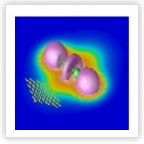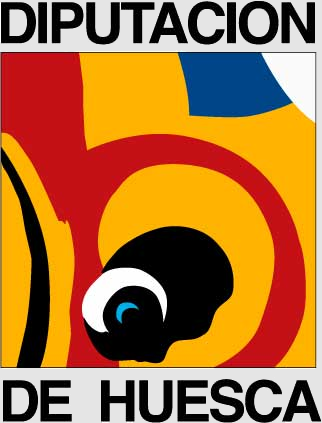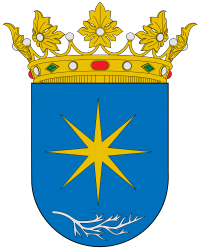School dates:
January 5-January 13
Workshop dates:
January 14-January 17
History
The School and Workshop on Time-Dependent Density Functional Theory
was first hosted by the Benasque Center for Science, Spain from August 28th
to September 12th, 2004. The aim of the school was to introduce theoretical,
practical, and numerical aspects of time-dependent density-functional theory
(TDDFT) to young graduate students, post-docs and even older scientists that
were envisaging a project for which TDDFT would be the tool of choice. The
outstanding success of this school led to the organization of a second, third, fourth and fifth events, held once more in Benasque, in 2006, 2008, 2010 and 2012.
As it had happened in the first school, there were close to two hundred applications (the statistics
indcates an ever increasing interest in the event with formal applications going from 100, to 120 and now 160
applications), with more than two thirds of them being rejected due to the hard limit of 40
participants, due to the hands-on part of the School (and to maximize the learning for the students and
close-contact with the teachers). This limit also
maximizes the outcome for the students and their interaction with the teachers.
At the end of the three schools, the students (graduate and postgraduate)
participated in the workshop held just after the school. The total
number of participants in the school+workshop was close to 110 in all
occasions. It is worth mentioning that participants came from all over the world,
making this series of schools and workshops a truly global event.
A clear demonstration of the impact of these events is the publication of two
Springer Lecture Notes book with the contributions from the schools. The first
book was the first comprehensive review of the field to be published.
A copy of this book was offered to all participants in the 3rd event, and
served as basic course material for the school. The second book was prepared
with the same spirit, updating all the material due to the fast changing pace of
the discipline. At the end of the schools we have always
conducted a survey among the students to get their impression on the contents
of the school, the lectures and practical sessions. The input was very positive,
in particular concerning the idea of having this combined event repeated in the
future. A two-year periodicity seemed to be ideal.
This school is also part of a more general training effort conducted at the
European level through the Psi-k Marie Curie Series of Events (Psi-k Training
in Computational Nanoscience) and the European Theoretical Spectroscopy Facility (ETSF) (http://etsf.eu).
Scientific Motivation
Time-dependent density-functional theory (TDDFT) is an extension of density
functional theory (DFT) to time-dependent problems, and can be viewed as an
alternative formulation of time-dependent quantum mechanics. As in DFT, the
wave-function no longer has the leading role: the basic variable of TDDFT is the
one-body electron density, n(r,t). The advantages are clear: a complex function
in 3N-dimensional space (where N is the number of electrons in the system) - the
many-body wave-function - is replaced by a real function that depends solely on
the 3-dimensional vector r - the density. Usually n(r,t) is obtained using an
auxiliary system of non-interacting electrons that feel an effective
time-dependent potential, the time-dependent Kohn-Sham potential. Its exact form
is, however, unknown, and has to be approximated.
The use of TDDFT is increasing, and it is fast becoming one of the tools of
choice to get accurate and reliable predictions for excited-state properties in
solid state physics, chemistry and biophysics, both in the linear and non-linear
regimes. This interest has been motivated by the recent developments of TDDFT
(and time-dependent current functional theory) and include the description of
photo-absorption cross section of molecules and nanostructures, electron-ion
dynamics in the excited state triggered by either a small or high intense laser
fields, van der Waals interactions, development of new functionals coping with
memory and non-locality effects, applications to biological systems
(chromophores), transport phenomena, optical spectra of solids and
low-dimensional structures (as nanotubes, polymers, surfaces...).
Despite the rising interest in the calculation of excited state properties of
quantum systems, the techniques being used have usually been just one of the
topics covered in international meetings, schools and workshops. This means that
scientists new to the field face difficulties in grasping its many aspects that
could be alleviated if they could attend a school on time-dependent density
functional theory (TDDFT) or Many-Body Techniques (MBT). We also believe that a
school on these techniques is extremely helpful for young graduate
students, post-docs and even older scientists that are envisaging a project for
which TDDFT/MBT would be the tool of choice. For this reason we decided to
organize a set of schools and workshops on these techniques, covering its
theoretical, practical, and numerical aspects. The first one was done in
Benasque in 2004 (see history above).
Following our previous experience, we are convinced that the most efficient
scheme for training of young researchers in these techniques is to have a school
where the basic theory is taught followed by a workshop that introduces them to
the forefront research in the field. The school should have an equal share of
theoretical and practical classes. This eases the learning of the
techniques and provides the students with the practical knowledge of the
numerical aspects and difficulties, at the same time introducing them to
well-established open source numerical codes. At the end of the school, students
should have sufficient working knowledge to pursue their projects at their home
institution.
The school is followed by an international workshop, where the new
developments of TDDFT and Many-Body Techniques for the calculation of
excitations are discussed. Students attending the school are encouraged
to attend the workshop, so they can get in contact with state of the art
research in the field. The purpose of the workshop is to bring together leading
experts in all these fields with different backgrounds, like density functional,
many-body, nuclear physics, quantum chemists, and biophysicists. This allows
the exchange of ideas between the different fields and the creation of links
between the traditionally separated communities.
Applications/Support:
All persons who wish to participate should fill out the application form at Registration
In the comments section, please indicate if you wish to participate in the School or in the Workshop (or in both).
School only:
As we have a very limited number of places for the school, students will be selected from among an open pool of applicants who have demonstrated a strong interest in computational sciences, applied to
chemistry, physics, materials science and biology. Therefore, in order that we can make a reasonable selection, we ask that *all* candidates include in the comments section the following information:
- Date of birth, gender. Research experience (number of years)
- Motivation/Why they want to come (just a couple of lines is enough)
- What is their current and previous positions (if PhD or Post-doc state your supervisor).
We will *not* accept applications that do not include this information. Furthermore, we will give priority to students willing to participate in both the the School and the Workshop.
We also have a certain number of grants available that cover traveling and part of the stay in Benasque. If you want to apply for a grant, please indicate explicitly that you wish to be supported in the comments section, and, very important, explain why. We will not offer grants to unjustified requests.
For participants coming from the USA, please check the following address for support support (NSF) (make clear your are applying for this activity and that it is supported by CECAM)
The list of speakers for the theoretical classes include:
K. Burke
E. K. U. Gross
N. Maitra
R. van Leeuwen
M. Gatti
I. Tokatly
D. Strubbe
I. Tavernelli
S. Huotari
M. Lein
S. Kurth
Registration Fee
Registration fee is 200 euros per participant.
This registration fee must be paid to the account of the Centro de Ciencias de Benasque Pedro Pascual after your application has been accepted.
Ibercaja (account number): 2085 2310 3803 3004 4193
IBAN: ES44 2085 2310 3803 3004 4193
BIC: CAZRES2Z
Please, send a copy of the transfer receipt (including your surname and the conference code, eg: 2014tddft Your_Surname) by e-mail to info@benasque.org
Cancelation Policy
A 30 euro charge will be applied for cancelations made up to 10 days before the conference start date.
A no refund policy will be applied to cancelations made after this date.
Tentative list of workshop speakers
Stefan Kurth
Pierluigi Cudazzo
Ilya Tokatly
Ivano Tavernelli
Manfred Lein
Kieron Burke
David Strubbe
Robert van Leeuwen
Simo Houtari
Esa Räsänen
Stefano Pittalis
Stefano Sanvito
Umberto de Giovannini
Martin Wolf
Christoph Lienau
Hardy Gross
Andreas Görling
Nacho Pascual
Garnet Chan
Matthias Nest
Heiko Appel
Marius Wanko
Roi Baer
School and workshop supported by:






















